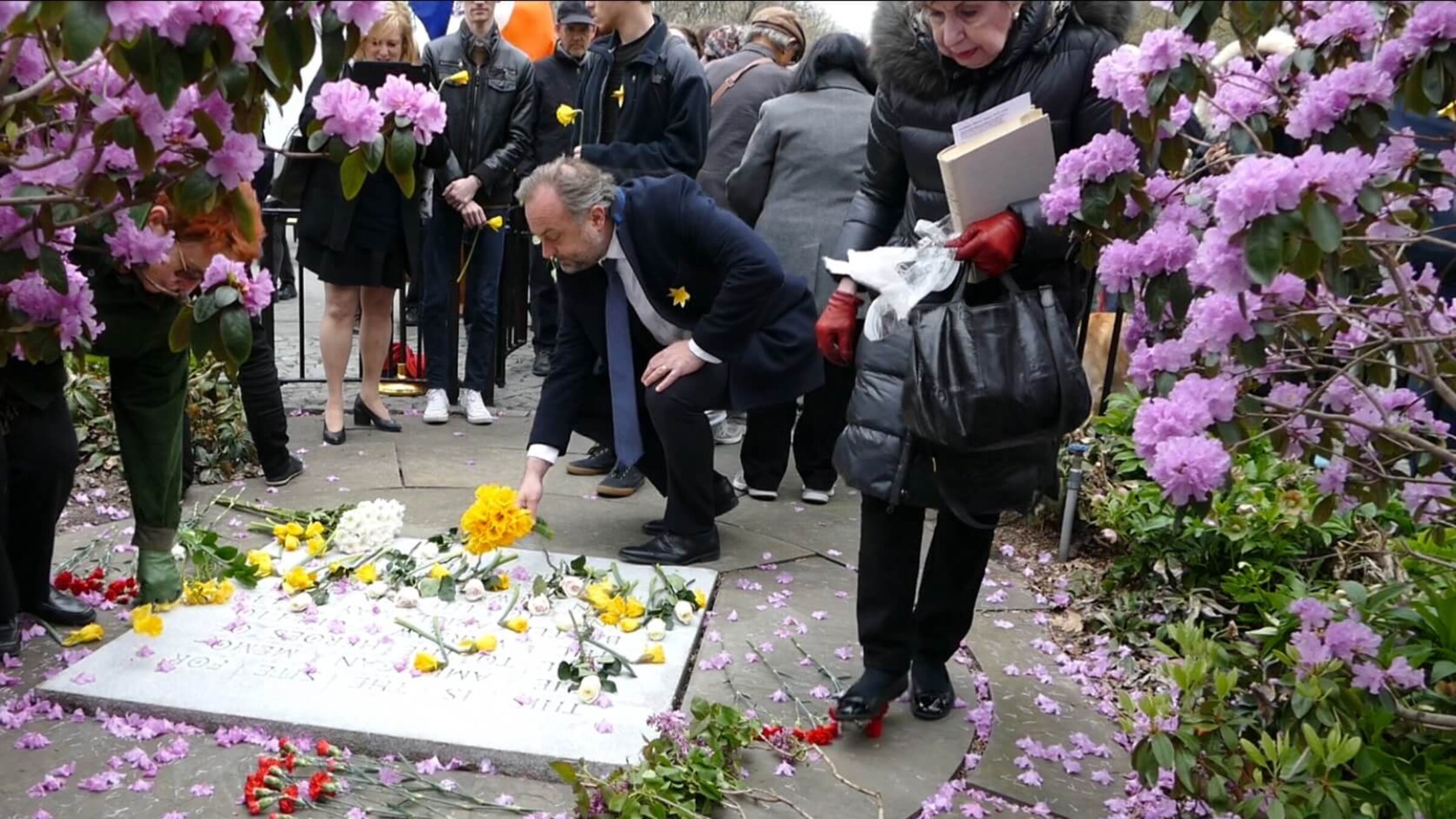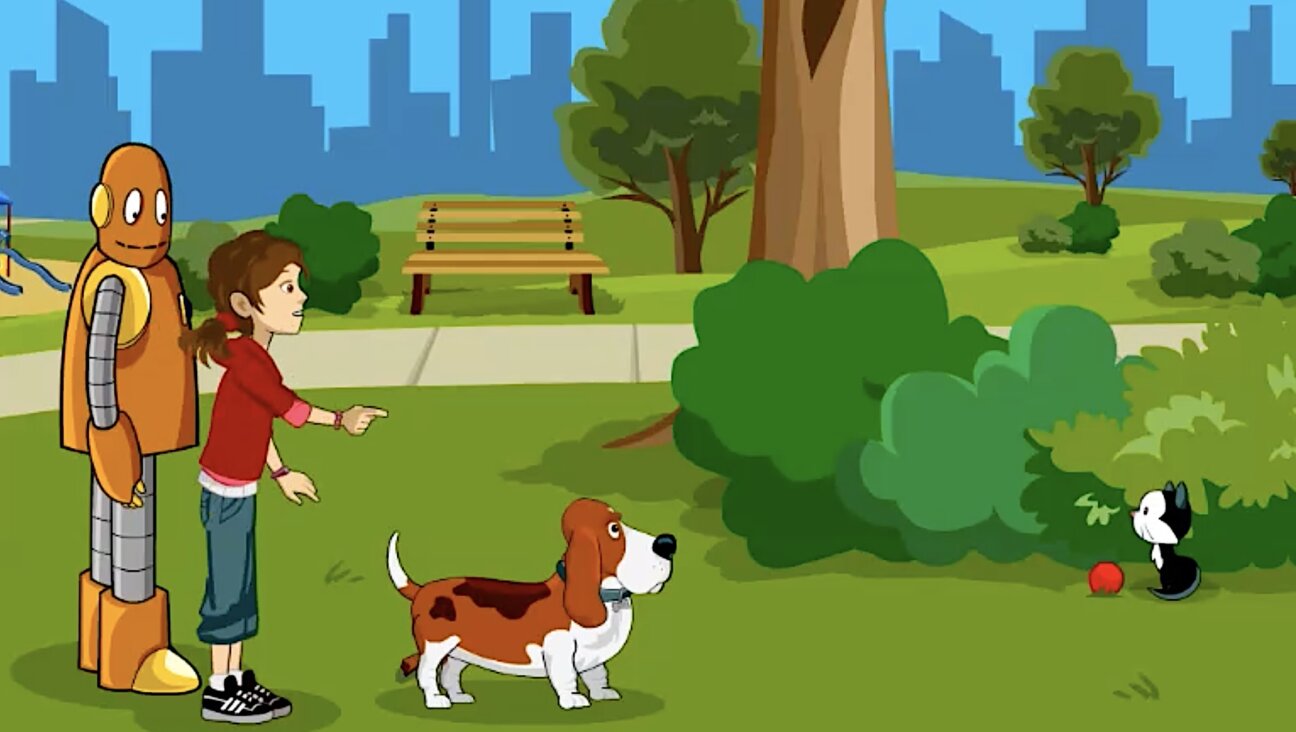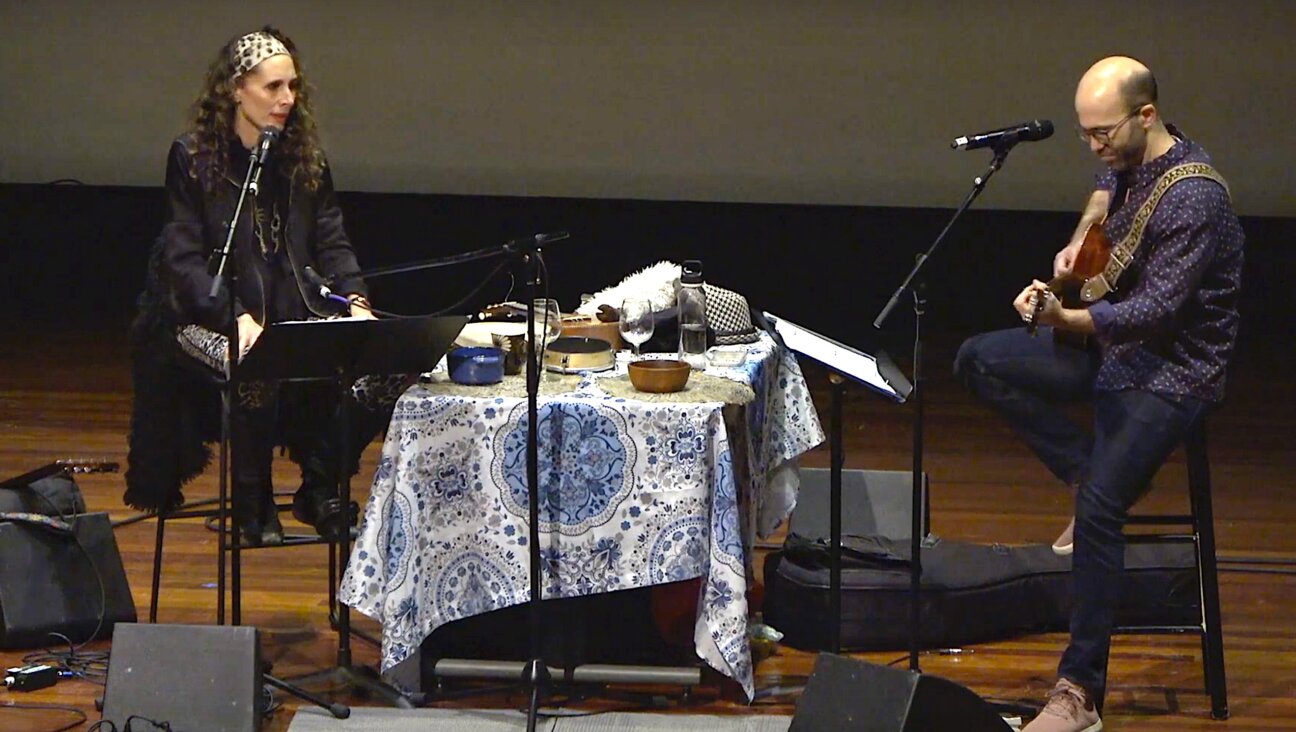80 years since the Warsaw Ghetto Uprising — how to commemorate it
There will be a ceremony honoring the ghetto fighters in Riverside Park as well as a recording of it provided right afterwards.

Photo by Congress for Jewish Culture
This year marks 80 years since the Warsaw Ghetto Uprising, which broke out on the second night of peysakh on April 19, 1943.
That historic event will be on the minds of many as Jews around the world commemorate Yom Hashoah beginning this Monday night, April 17. Here are several ways that you can commemorate it yourself.
For those of you who live in the New York vicinity, there’s no better way optsugebn koved (to honor) those Jews who resisted, those who died and those who survived the Warsaw Ghetto Uprising than to attend the annual ceremony at Der Shteyn in Riverside Park between 83rd and 84th Streets on April 19 at 3 p.m. ET. The program, which takes place in Yiddish and English, is sponsored by the Congress for Jewish Culture in conjunction with several other Yiddish organizations and includes readings and performances by the grown children of ghetto fighters and Holocaust survivors.
For those of you who can’t attend the ceremony, the program will be recorded and available on YouTube after the event.
Another important commemoration, also taking place on April 19, is a special concert at 7 p.m. at Carnegie Hall: the American premiere of a symphony inspired by Chiune Sugihara, the Japanese diplomat who saved thousands of Jews from the Nazis. The piece, “Vessels of Light,” composed by Lera Auerbach, includes a Yiddish poem by Dovid Hofshteyn called “Violoncello,” as well as poetry by Avrom Sutskever, Peretz Markish, Reyzl Zhikhlinski, Itsik Manger and others.
As Auerbach herself writes: “I chose Yiddish poetry for the libretto – as a tribute to the Yiddish language. The language itself suffered – it lost too many people. The words of the poets penetrate the void, connect generations, guide us, and don’t let us forget who we are.”
To read an interview with the cellist who conceived of and performs in the concert go here.
To read a more detailed article that also describes how the Yiddish cultural figure Joseph Mlotek was saved by Sugihara, go here.
For tickets to the concert, go here.
























